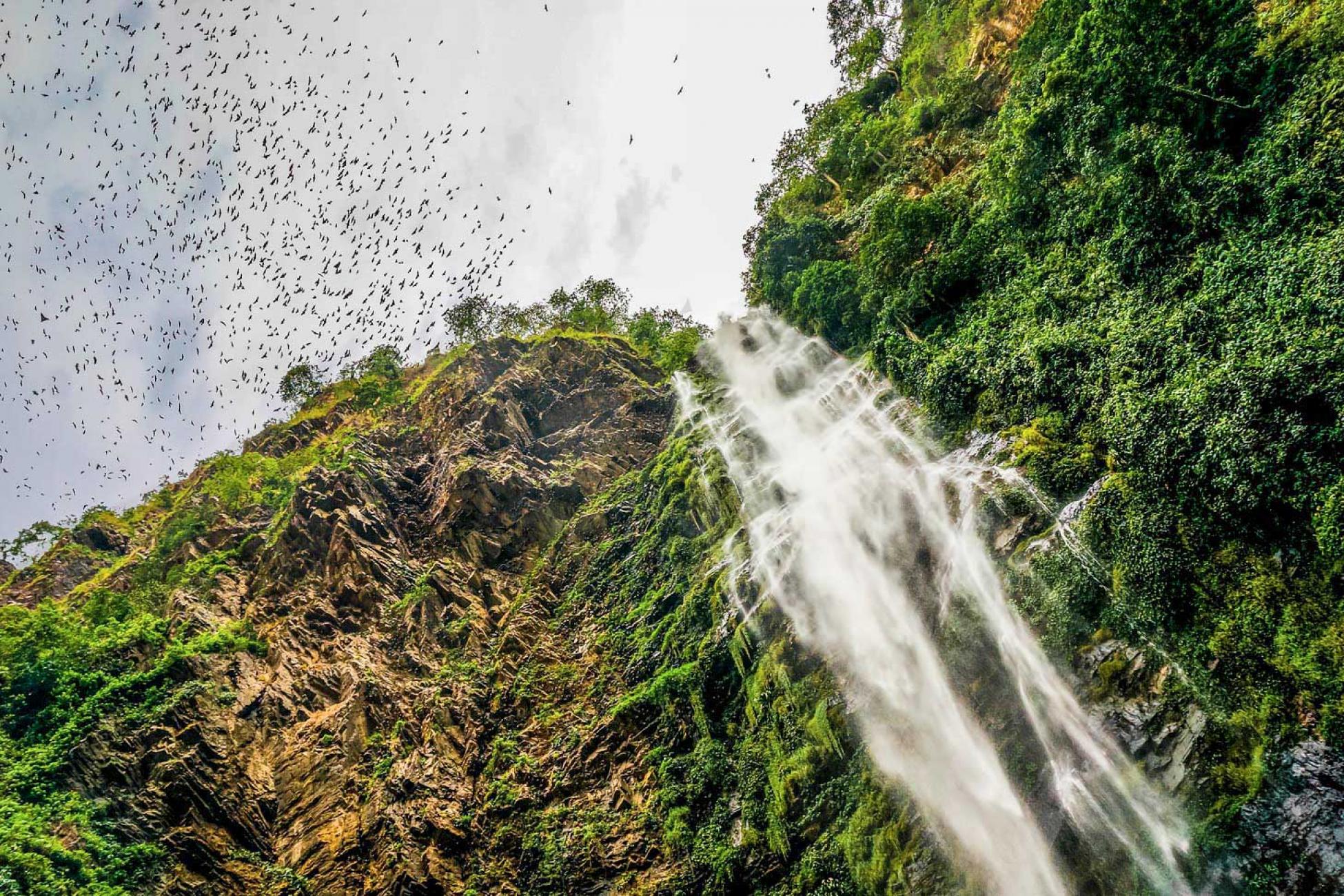As anyone who has ever visited Thailand, the Great Barrier Reef, Mount Everest, or Cozumel, Mexico will attest, tourism can put a massive strain on the environment. While visitors may bolster a country's economy, they also contribute to the depletion of natural resources and degradation of natural environments. However, tourism has the capacity to contribute to environmental conservation through community-focused eco-tourism programs.
But when it comes to making green travel choices, how do you tell the difference between an eco-friendly vacation and just another greenwashed tour?
This month, our online discussion panel of green travel experts includes:
• Molly Fried, the Outreach Coordinator for Greenheart Travel, a non-profit organization that emphasizes environmentalism, fair trade and volunteer service through cultural exchanges.
• Sam Hopkins, Marketing Executive for The Great Projects, an award-volunteer abroad and tour operator that builds conservation pledges into all of its programs, ensuring a sustainable impact on the planet's endangered species and the local communities that live alongside them.
• David Fairley, the Head of Marketing for Frontier/The Society for Environmental Exploration, a non-profit that has been facilitating volunteer projects focused on conservation for over 20 years.
Ecotourism isn't a new concept. Yet, the environment still seems to be an afterthought for many travellers. How does tourism affect the environment—for better or for worse?
David: Tourism is often focused solely on commerce and this can mean that environmental or cultural concerns are forgotten or neglected. As an example, we have had many situations close by to our marine conservation where tourist boats visit shallow reef areas and end up damaging the reefs. In many cases, Frontier has been able to work with local tourist boards as well as tour operators to advise on low-impact alternatives to this type of tourism, or better practices to avoid damage to this kind of natural heritage.
Sam: There are numerous environmental consequences due to mass tourism. However, that's not to say that all tourism is negative. Here at The Great Projects, we believe that "ecotourism" helps to not only promote the conservation of wildlife and natural resources, but it also creates alternative sources of employment and educates local communities, thus reducing problems such as over-fishing and deforestation in developing nations.
Molly: Wasteful water consumption and trash along the beaches and natural areas are just a few examples of how visitors can negatively affect a destination site. On the other end of the spectrum, tourism can have a positive impact on the environment if travellers are mindful of their carbon footprint. For example, ecotourism is relatively new in the Amazon, but is directly contributing to the success of such reforestation efforts. Greenheart Travel sends volunteers to the Peruvian Amazon rainforest, home to one in 10 known species on Earth, where they get a chance to assist with sophisticated reforestation projects and learn about the challenges of preserving this vital ecosystem.
Given what we know about the detrimental effects of tourism on the environment, should travellers continue to visit conservation areas or ecologically sensitive sites, such as the Galapagos, or should they be avoided?
Sam: People should be able to visit conservation areas, so long as the effect on the environment, the flora and fauna and the local communities is minimal. Mass tourism can be—and often is—completely damaging. Conversely, we believe that "responsible" tourism can actually be entirely positive as it serves to educate travellers about the destination that they are visiting and also their role in helping to conserve it.
Molly: Experiencing these conservation areas can often inspire a deep respect for the environment and drive an individual to take action to preserve our natural resources, but the risk is that even this ecotourism can cause a strain on or even irreversible damage to an ecosystem. While we feel it is very important to have these powerful experiences, travel should be done in a conscious and respectful manner.
How can travellers reduce their impact on the environment?
David: One of the main things that travellers can do to reduce their impact is choosing accommodation wisely. Large developments in remote areas can be catastrophic to the local environment, in terms of their initial impact when being developed, as well their ongoing negative effect on the environment. These types of developments also tend to be very energy-inefficient. A low-impact project, with sympathetic accommodation and responsible energy use, can offer a much truer experience while also avoiding damage to the local environment or antagonism with local communities.
Molly: We, as travellers, must educate ourselves on how tourism trends positively and negatively affect the environment. Travel is not just about checking a place off of a list but an opportunity to discover, as well as share new ideas and ways of living. When we ask questions—for example, "Where was this made? Were people paid fair wages? How are the accommodations impacting the environment?"—we are starting a conversation that highlights that these details matter and that people are paying attention.
"Greenwashing" happens even in the tourism industry. How can travellers determine if a service provider is truly eco-conscious?
David: An organization that claims to be environmentally or socially-conscious should be able to back this up with published research or evidence of successful social projects. For example, Frontier has been at the forefront of research since 1989, with hundreds of peer-reviewed science articles, and more than 1,500 children and adults from poorer communities benefiting from our teaching and community volunteers each year.
Molly: To determine if an organization is truly walking the walk of ecotourism, look first at the whole organization before evaluating the promises of an individual program. Is this an organization you trust? Have the leaders of the organization taken steps to ensure its practices are responsible and environmentally friendly? One way to seek more information is asking if they have an annual impact report or another publication that demonstrates their leadership in this movement. Or ask if they belong to any environmental or tourism associations. Greenheart Travel also recommends asking to be connected to alumni.

Want to ask our experts for more advice (and maybe win some prizes in the process)? Join Verge Magazine and HI Boston for "The Ecotourist" Twitter chat on Wednesday, April 1. Log on at 3:30 PM EST and look for the hashtag #travelwithpurpose.

